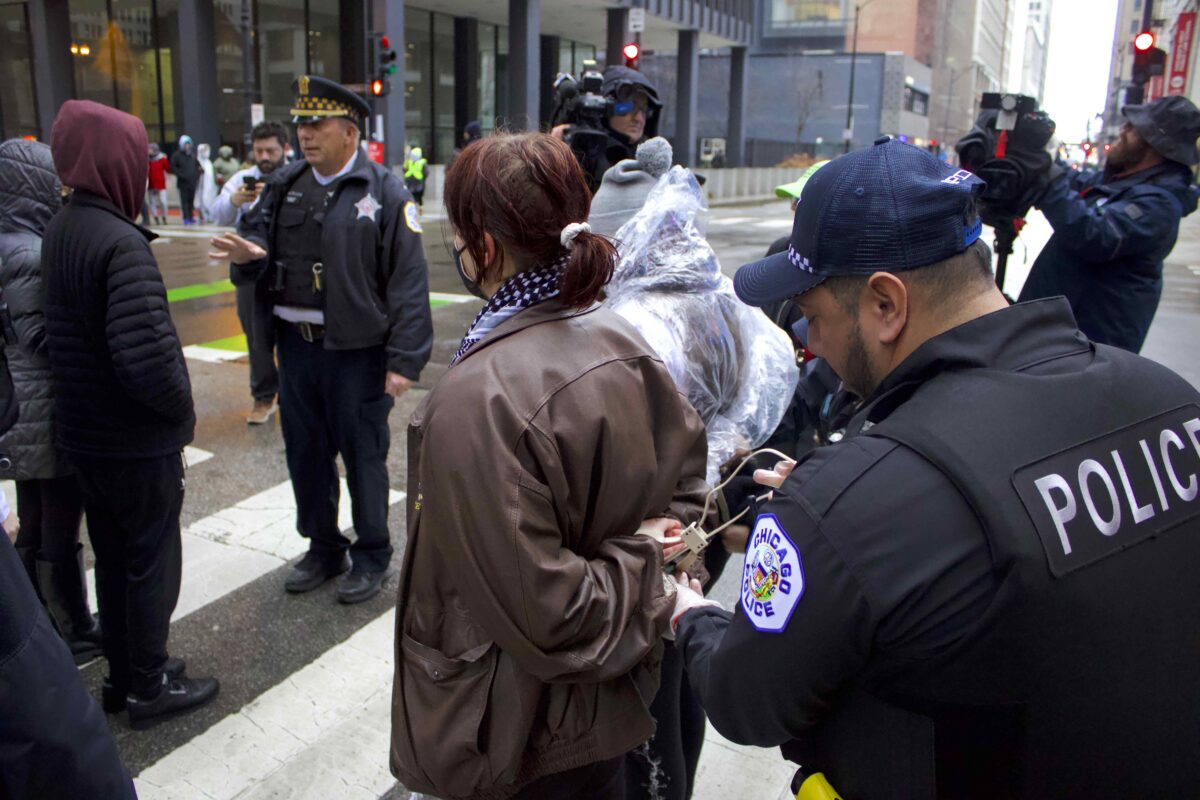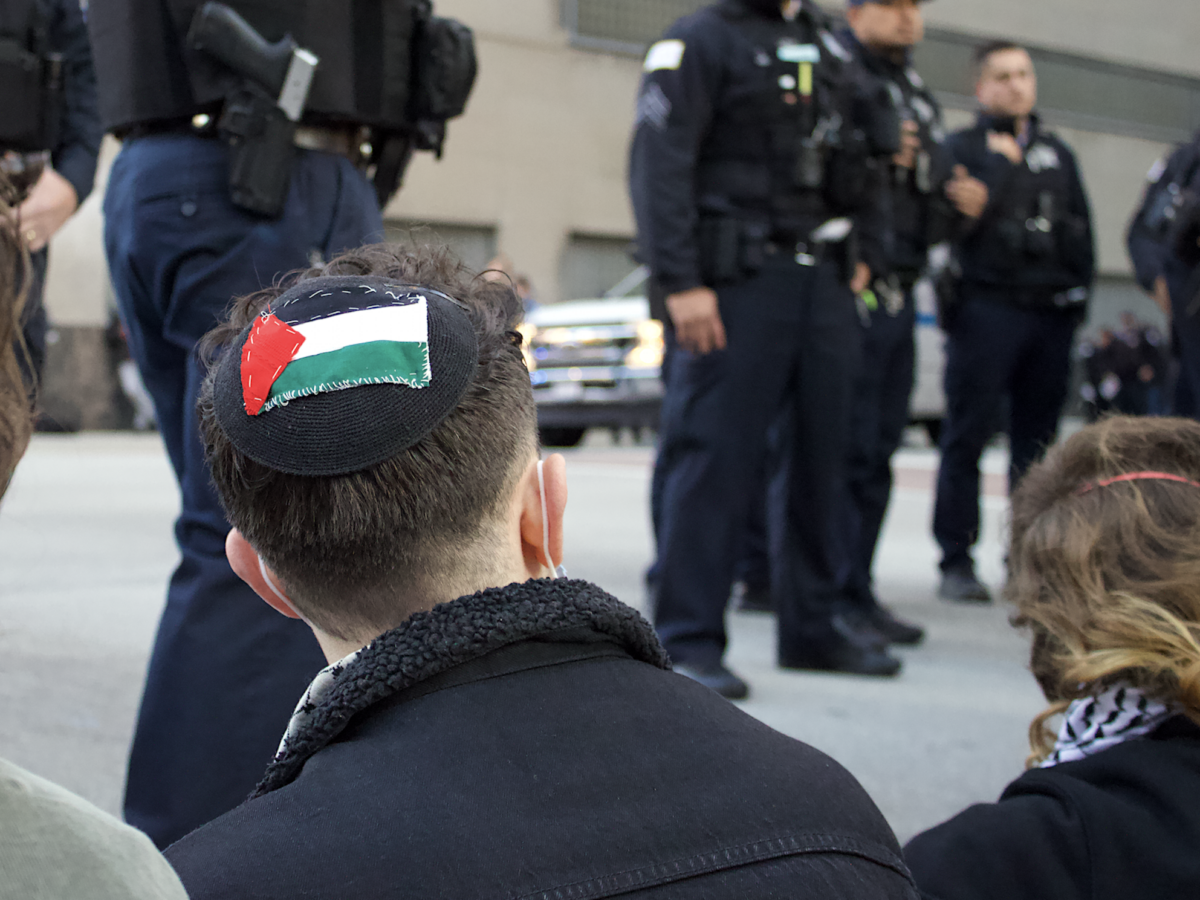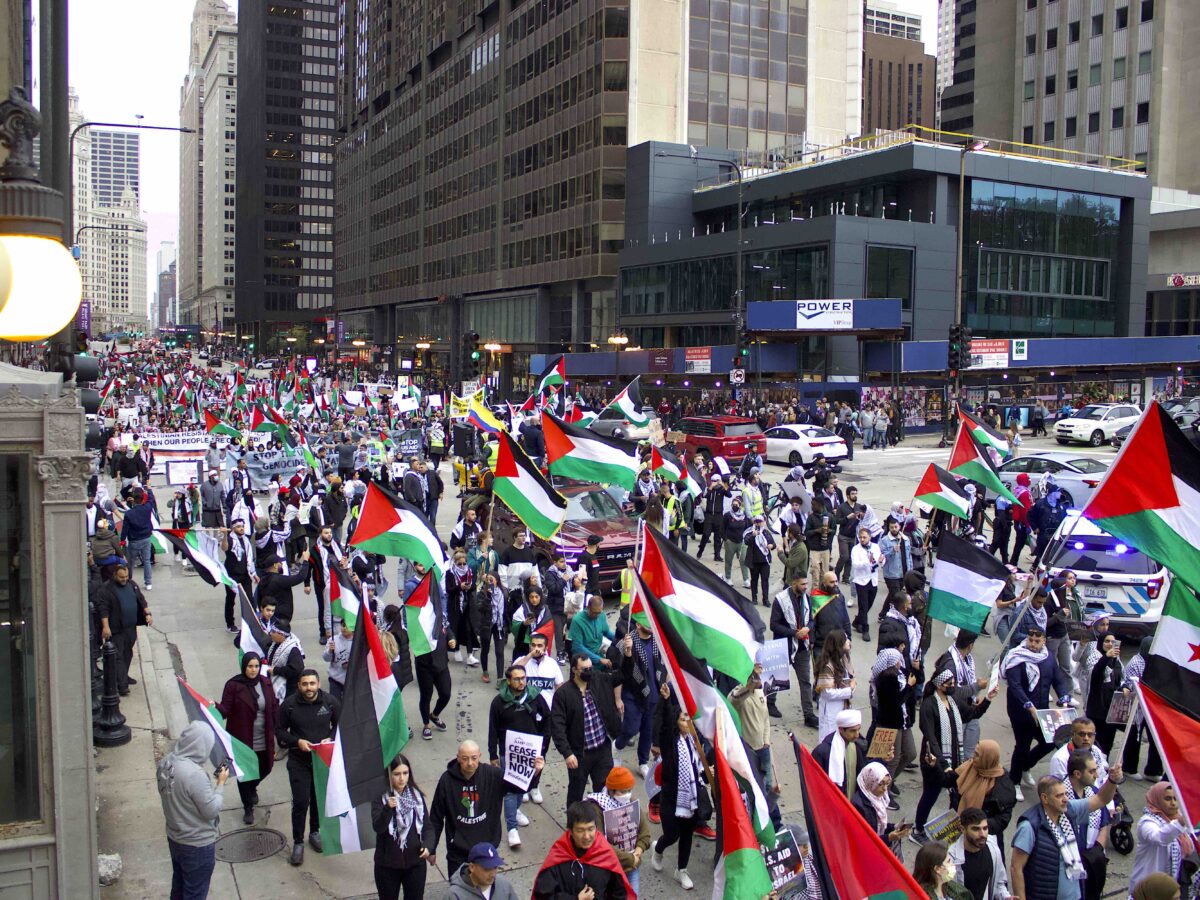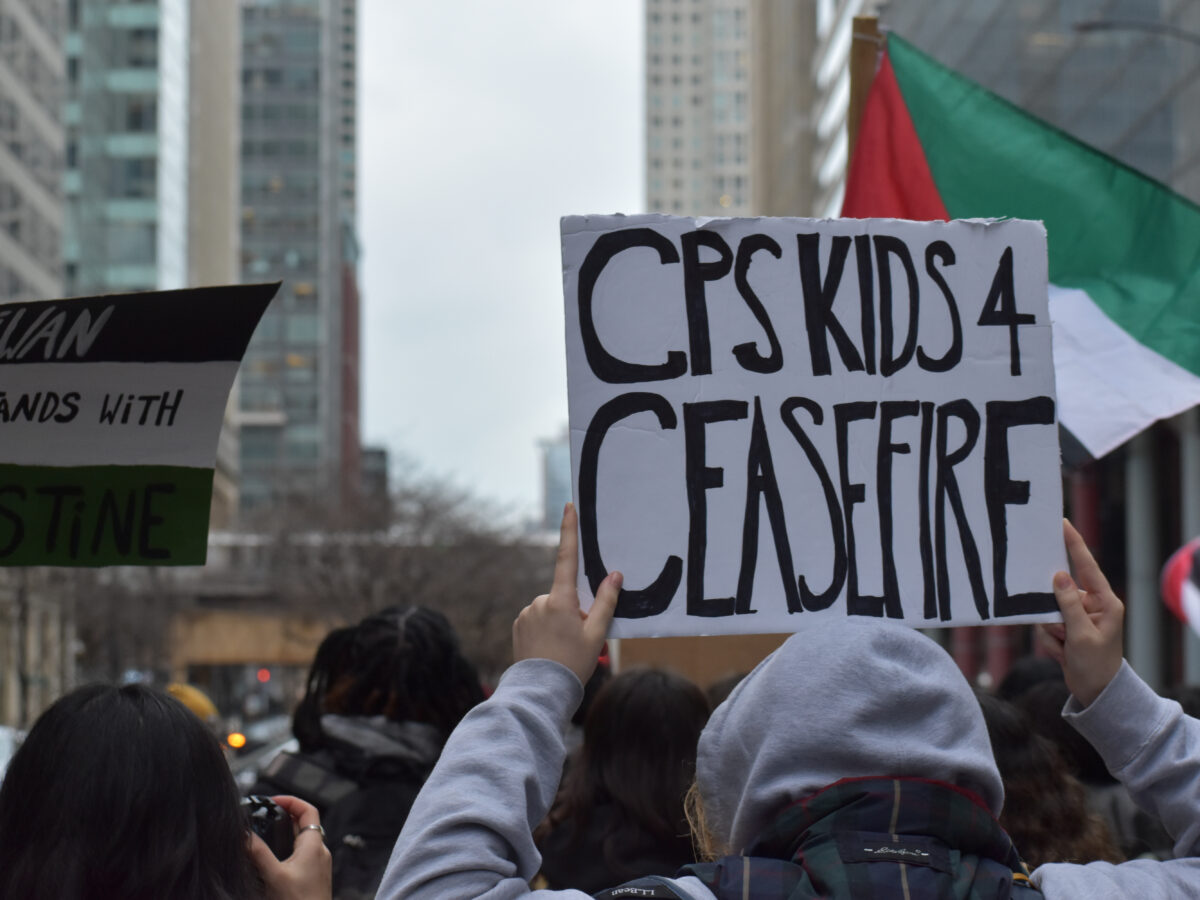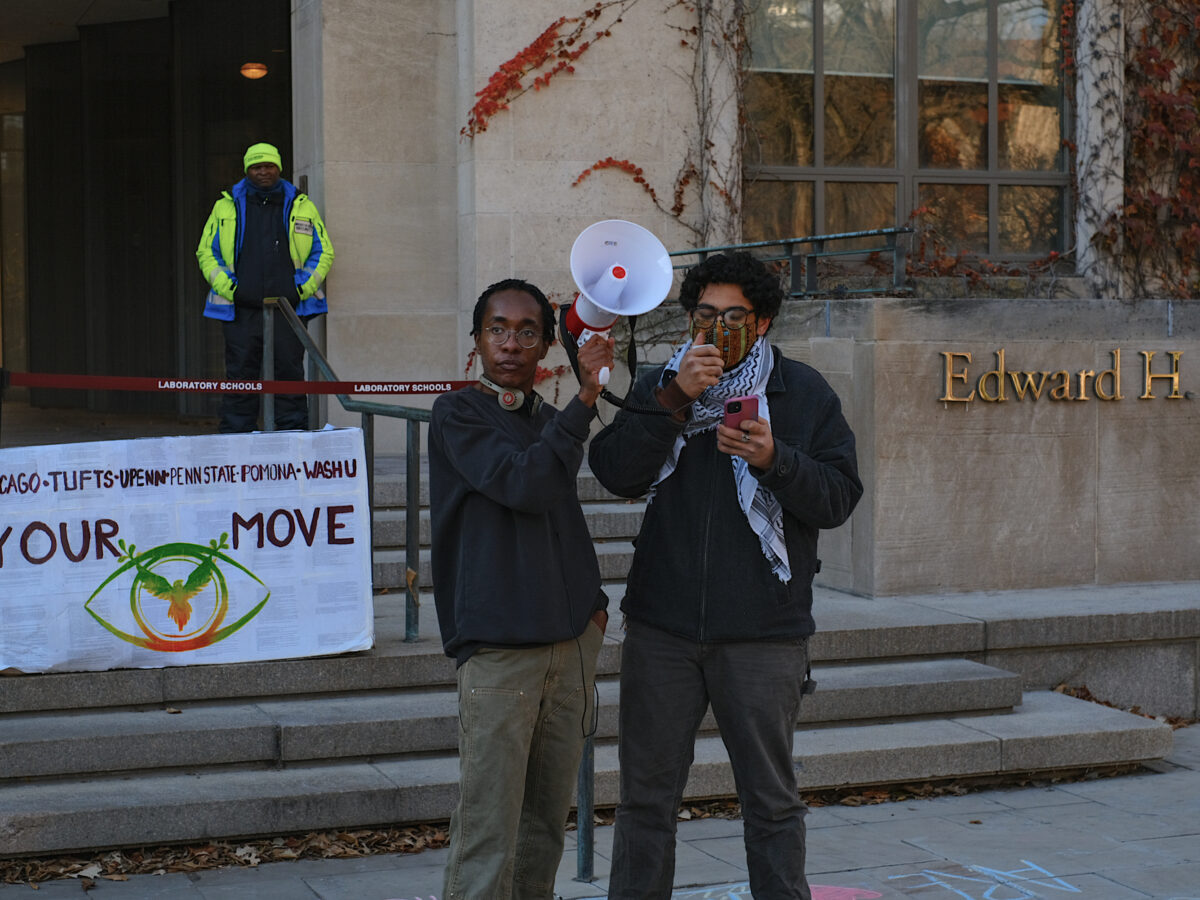Rayan Abdullah Zakaria al-Astal. Zein al-Din Suleiman Moin al-Najjar. Lujain Moataz Obaid Yassin. Amer Saber Younis Radwan. Heba Ismail Hussein al-Zaanen.
On Thursday morning, a coalition of organizers began reading the names of Palestinians who have been killed in Israel’s siege of Gaza. Over the next twenty-four hours, they would read more than ten thousand names, or barely a third of the casualties reported by the Gaza Health Ministry since the war began in October. The true count of victims is likely much higher. Hundreds have not yet been identified. Thousands are children.
The coalition that organized the vigil includes the U.S. Palestinian Community Network; the Chicago chapters of Jewish Voice for Peace, IfNotNow, and American Muslims for Palestine; Dissenters; Chicago Educators for Palestine; the Chicago Teachers Union’s Caucus of Rank and-file Educators (CORE); the Chicago Alliance Against Racist and Political Repression, Tzedek Chicago; and Jewish Fast for Gaza.
“Being anti-genocide is not antisemitic, it’s pro-humanity. We stand in solidarity with everyone around the world calling for a permanent ceasefire,” said Dave Stieber, a member of CORE, in a statement the coalition released. “As a caucus of rank-and-file educators, we know humanity is connected and we speak out for life here in Chicago and Palestine.”
As President Joe Biden delivered the State of the Union address to a joint session of Congress in Washington, D.C. Thursday night, In These Times executive editor Ari Bloomekatz and U of C sociologist Eman Abdelhadi gave speeches of their own outside the Federal Building, calling the gathering the “state of the genocide.”
“Our fellow Americans, our comrades, our people—our message is simple: We have work to do,” Bloomekatz said in his speech. “Our elected officials have abdicated their responsibilities. They do not care that we want peace, that we want justice, that we abhor murder [and] will not stand for genocide.”
Bloomekatz wondered aloud if Biden could hear the voices of voters who have cast “uncommitted” ballots in Michigan and elsewhere to protest Biden’s support of the Israeli siege. “You still have to earn our vote,” he said.
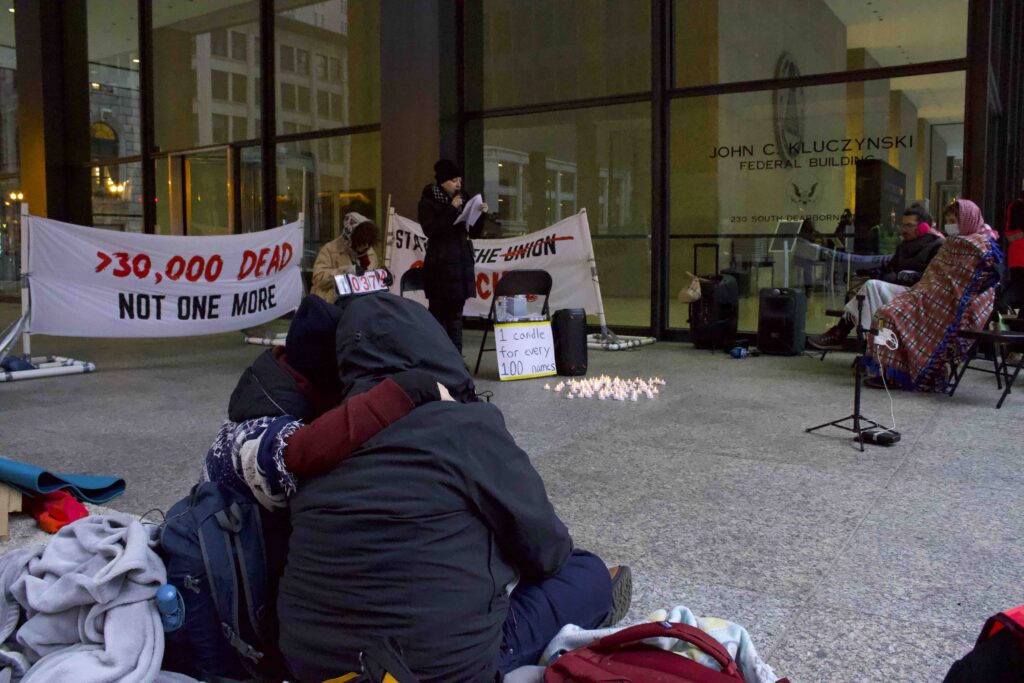
The vigil continued after the speeches, with organizers reading names of victims through the night. They also wrote the names on red, white, and green ribbons that they hung in a colorful but somber display, and lit an electric candle for every 100 victims.
Shortly before dawn broke under an overcast sky on the second day, the vigil-keepers acknowledged the ten thousandth victim. Like many, their name was unknown.
About an hour later, some forty protesters marched into the intersection of Jackson and Dearborn and linked arms, lining two crosswalks and blocking traffic. Nitaawe Banks, a member of the Native American and Indigenous Students Association at DePaul University who took part in the action, said he was there in solidarity with Palestine.
“It’s hard sometimes to conceptualize and understand, emotionally, many atrocities happening all at once,” Banks said. “But when you connect all of it into one single vigil…and you hear names for twenty-four hours, you hear almost an hour of ‘unknown child,’ it is so incredibly hard to fathom any of it. And I feel like that’s part of the trick of oppression is that the rate at which institutions that enable and participate in genocide carry out their actions outstrips your ability as a human being to understand it.”
Banks added that he “didn’t see what the point” would be of a temporary naval port Biden proposed during his State of the Union address as a means to deliver aid to Gaza. “You cannot be funding the Israeli military…and then do air drops or build a port,” he said. “It does not absolve you of the moral and political failing. It’s a way to sanitize or divert anger from constituents.”
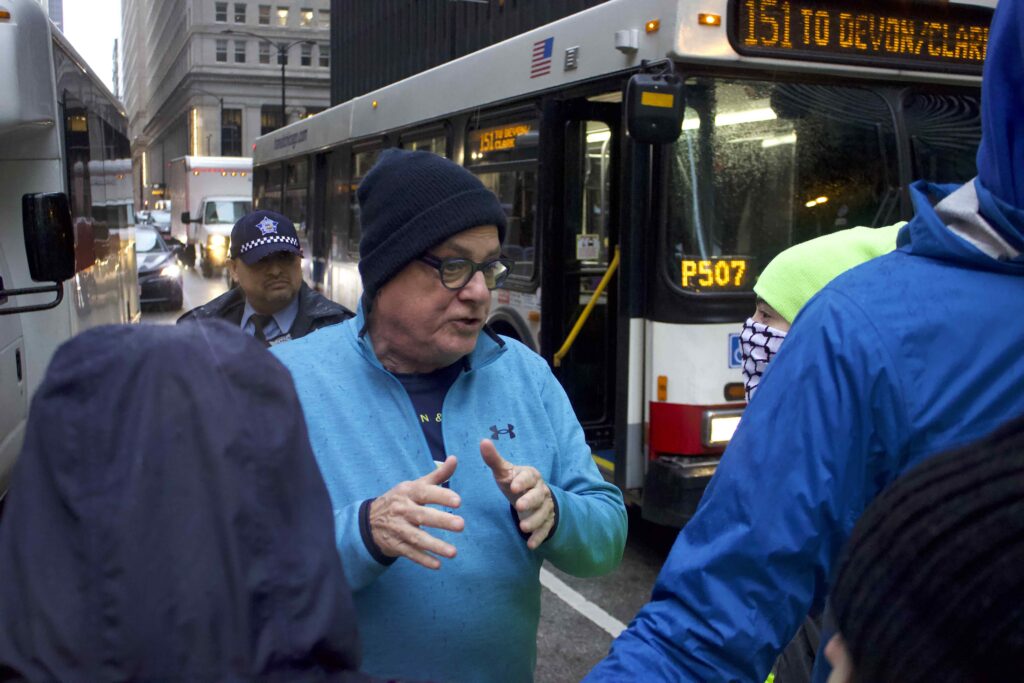
Police eventually routed cars around the intersection, but not before the demonstration had snarled eastbound traffic on Jackson. Some drivers leaned on their horns; others got out to admonish the demonstrators. As one man drove through the intersection, he shouted “October 7, motherfuckers,” evoking the date Hamas militants attacked Israeli kibbutzim, killing some 1,200 people and taking more than 200 hostage.
Brian Orr, of Edgewater, had a more tranquil response to the direct action. He left his car in traffic on Jackson Blvd. and strolled to a Dunkin’ Donuts on the corner for some breakfast. On his way back to the car, carrying a box of donuts and in good spirits, he said the great thing about America is that everyone has a right to protest.
“I think if people feel strongly about something, they should do something about it,” Orr said. “And you know, yeah, it’s inconvenient for me, and it’s going to be inconvenient for others, but it is going to bring attention, and I think we have to take things in the most positive spin that we can just because we do live in a country like this.”
The intersection was soon empty except for the protesters and the occasional cyclist who slipped through their lines in the bike lane. Loop office workers still gaped at the demonstration as they hustled past. Some, curious, stopped to watch or take pictures. Others were dismissive.
“Every single [protester] should be arrested,” said a passerby who declined to give his name. “These are Jew-haters. They’ll kill all the Jews if they get the opportunity.”
Many of the protesters blocking the intersection were themselves Jewish.
Around 8am, police began making arrests. Over the next hour, thirty-three people were arrested. According to a CPD spokesperson, they were issued citations for obstructing traffic.
Jessica Duhig, a resident of Berwyn who paused to watch, was supportive. The protesters were “a lot of people that care about other people,” she said. “I think they’re trying to have their voices heard. For months, we’ve seen nothing but devastation” in Gaza. “Shutting down the street to hold a protest for others that aren’t able to do that for themselves—I think it’s very powerful.”
Jim Daley is the Weekly’s investigations editor.



